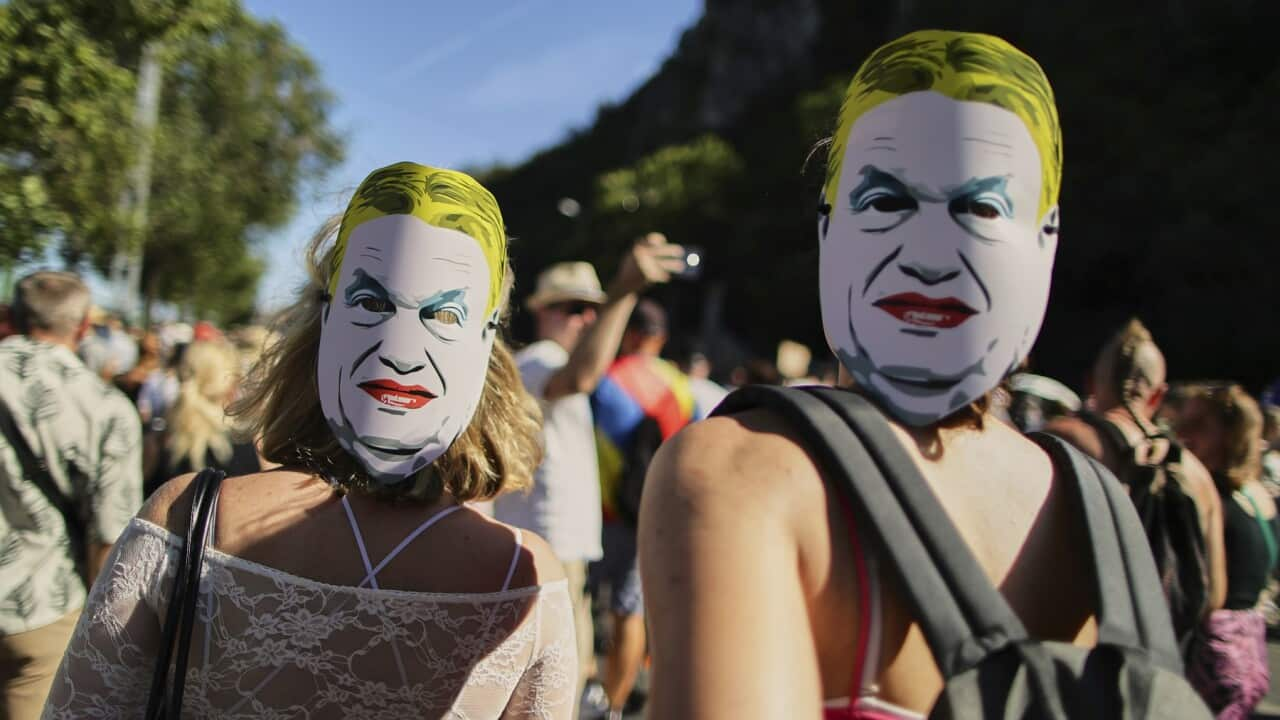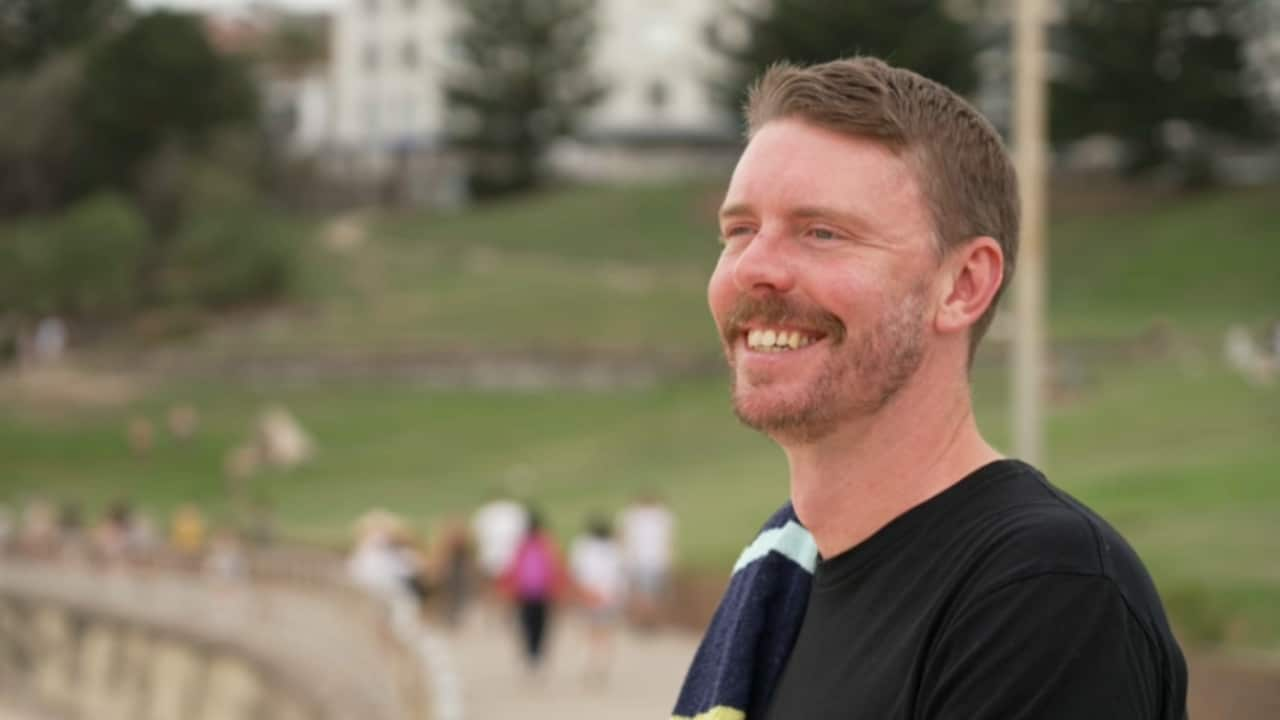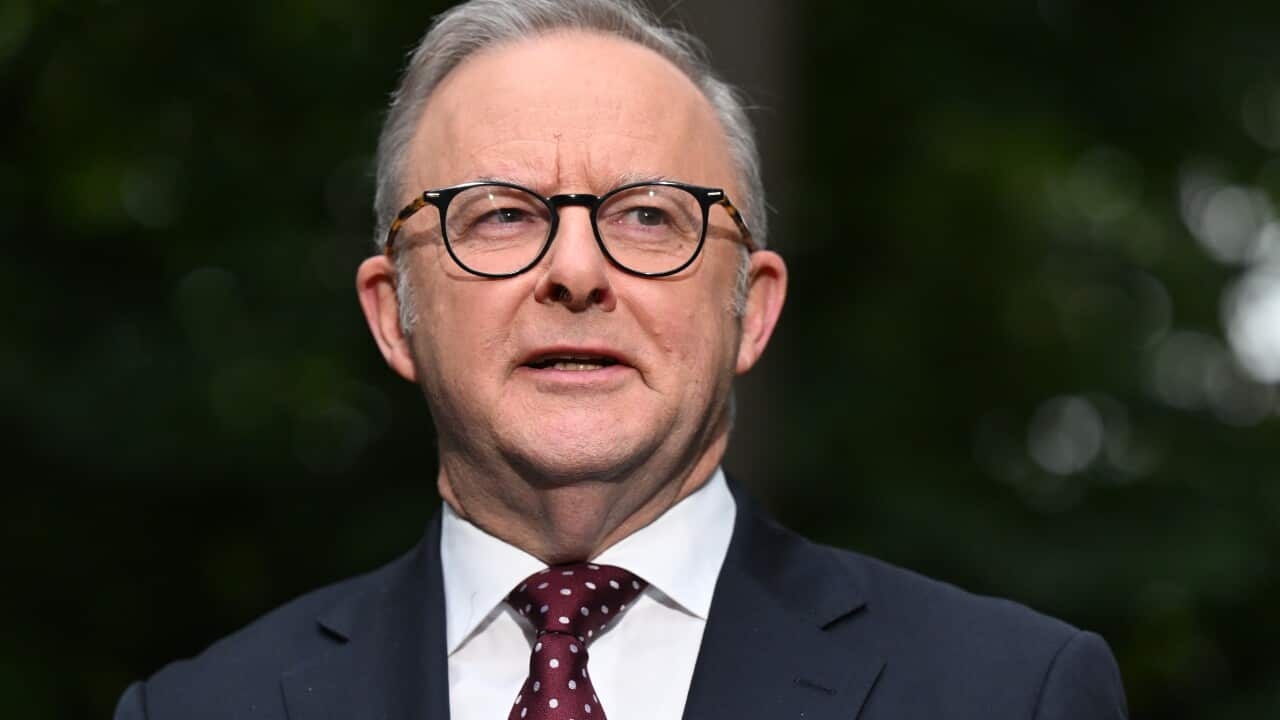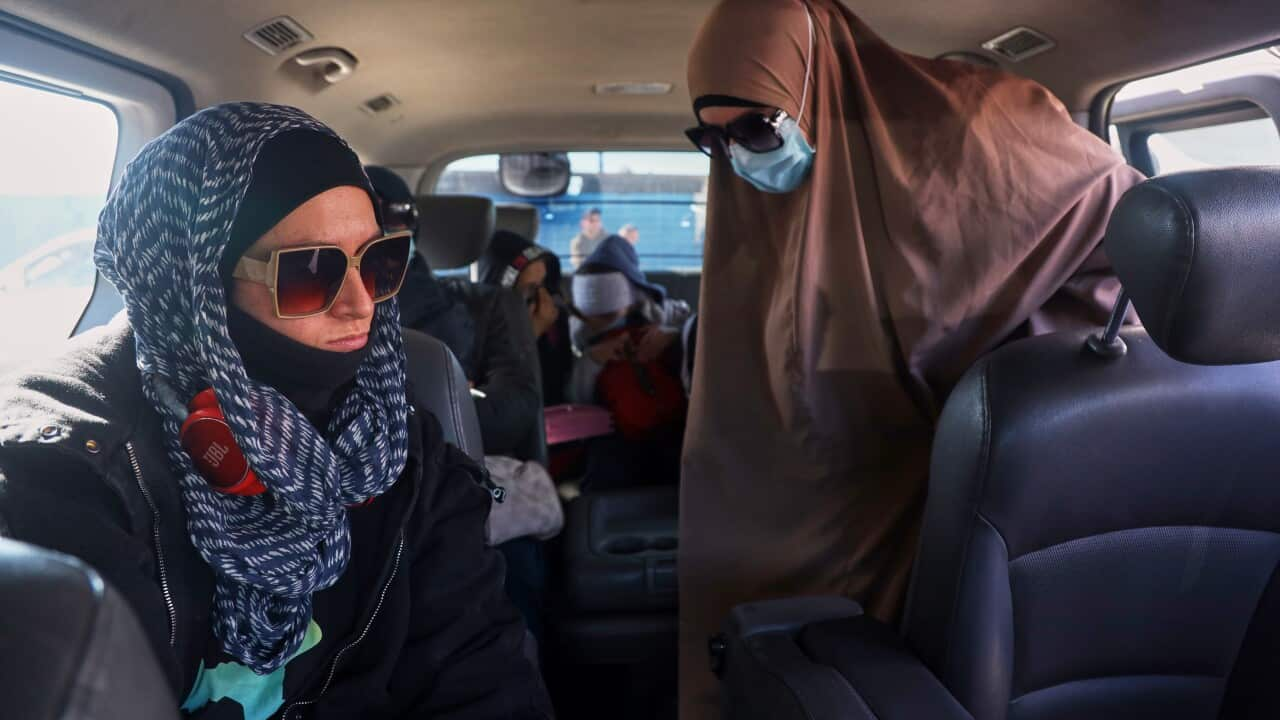Listen to Australian and world news, and follow trending topics with SBS News Podcasts.
TRANSCRIPT
Undeterred by threats of arrest, up to 200,000 people have taken part in the Hungary's largest-ever L-G-B-T-I-Q Pride march.
Organisers say record numbers turned up to the event in Hungary's capital, in an act of open defiance of the police ban imposed by the nationalist government.
Ahead of the event, Prime Minister Viktor Orban told reporters that people can do as they please, but the law will be enforced.
HUNGARIAN THEN ENGLISH: "We're grown-up people. I advise everyone to decide what they want. Obey the law, I do that, and I would advise everybody else to do that, or if you do not comply, you will have to reckon with the clearly described legal consequences.”
Hungary's governing coalition amended its laws and constitution this year, prohibiting the annual celebration on the grounds of child protection.
Under the ban, parade organisers could face up to a year in prison and attendees face fines of up to $900.
Activist and journalist Ádám Kanicsár says the ban will not stop the community from feeling pride.
"In the community no one really cares if its legal or not. Because even if it would be illegal, we would go because we want to be there and we have to be here. So we don't really care about the consequences, we are here because we are proud. And we are not just only proud of our LGBT identities or some people who are allies, we are also proud Hungarians and we have to stick together."
Defying the Prime Minister, the opposition-run local council decided to co-host the event.
Since Mr Orban's return to power in 2010, the government has been steadily rolling back the rights of LGBTIQ people.
The Mayor of Budapest, Gergely Karácsony [[GER-gei KAH-rah-chohn]] says the government made a huge mistake with this ban.
HUNGARIAN THEN ENGLISH:"The arguments of the government are completely frivolous and say nothing more than that (political party) Fidesz has admitted that it has made a fatal political mistake by trying to ban this event."
Hungary is the first E-U nation to ban a Pride march, and Mr Orban says he was emboldened by the anti-diversity push in the U-S.
At a Pride event in Portugal last week, Hungarian politician Dávid Bedő put out a call for Europeans to turn out in support.
“No matter what our government says, no matter what the police say, we are going to be there a week from now in Budapest. And there will be more than 200 politicians joining us, more than 70 MEPs, more than 60 MPs, the mayor of Amsterdam is coming to Budapest so its going to be a very big international presence a week from now in Budapest. And I urge everyone to come and join us for Budapest Pride because it is very important at a time of oppression to stand up and fight for our freedoms.”
Heeding the calls, dozens of European lawmakers travelled to Hungary for the march.
The latest legal changes in Hungary also empower police to use facial-recognition technology to identify participants - with cameras installed on lamp posts.
However, due to the record turnout, analysts say it will be difficult for the government to enforce.
With attendance far exceeding the previous record of 35,000 people, Orsi Domdan says they're thrilled with the support from neighbouring countries.
"And everyone wants their freedom and everyone wants to express their need for freedom. You know what I mean? No one wants to live in oppression, actually. And then love is more important than power. And yeah, I think people, even if they don't want to, whoever wouldn't come out to protest, everyone came out to protest, and it is for freedom. It's not really, and then liberal. Views, actually, and for love and equality and very much against the government, I believe. And I'm very happy that neighbouring countries came to support us as well. So it's like many, many, many people, way more than we expected, actually."
Earlier this week, European Union Chief Ursula Von der Leyen made calls for a reversal of the ban.
Thirty-three countries, including most E-U nations, also released statements supporting the march.
The European Commissioner for Equality, Preparedness and Crisis Management, Hadja Lahbib, says they won't allow a single member state to defy the commission's values.
"The commission's position is very clear. And our president, Ursula von der Leyen had a very strong message yesterday, you could find it on her social media. She asks to Orbán's government to withdraw this ban and to change his opinion, and to allow this Pride. So I can't be more clear again, we are here with you, we stand with the LGBTIQ+ community. It is a core value to gather peacefully, to be who you are, to love who you are."













